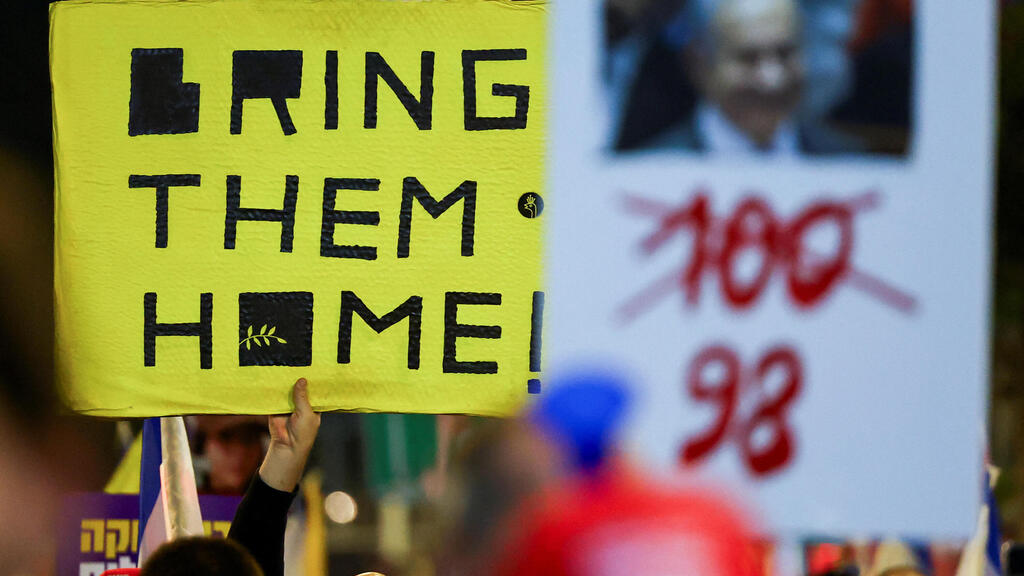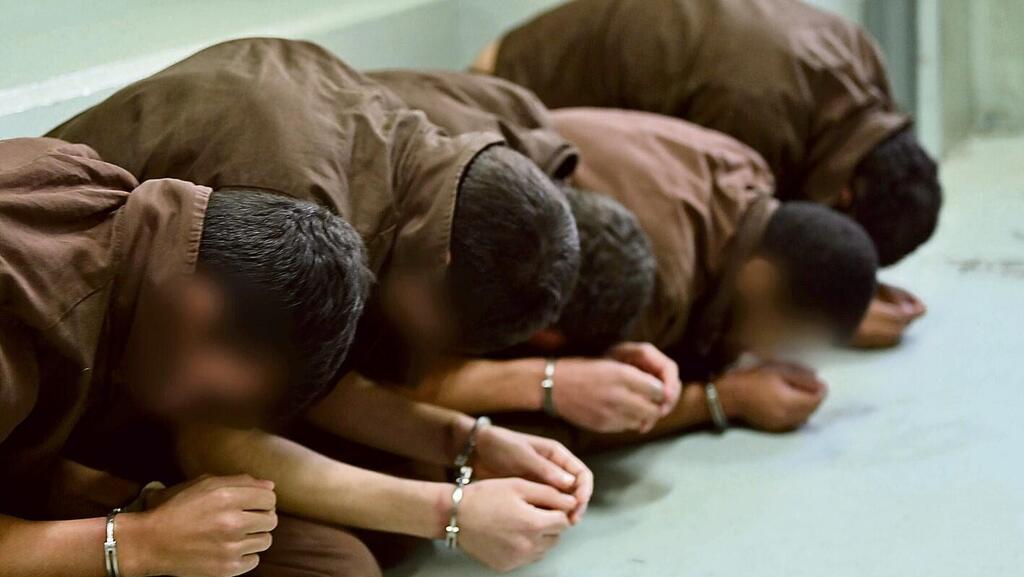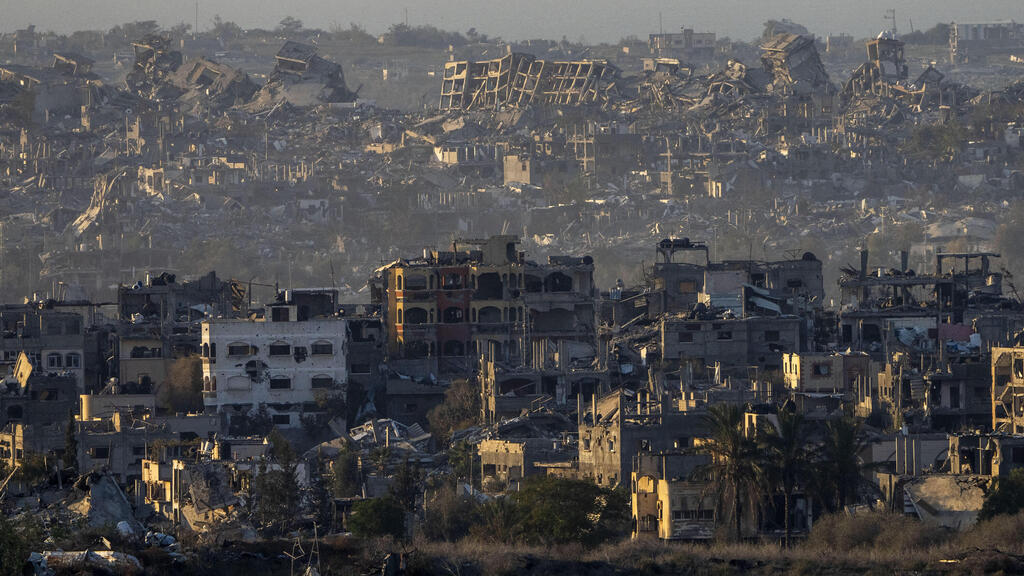Getting your Trinity Audio player ready...
Hamas confirmed on Monday that there was significant progress in negotiations with Israel. "The freedom of our heroic prisoners is near." The terror group also called on Palestinians to escalate confrontations with Israel, citing "increasing crimes against our people, our holy sites, and our prisoners," a spokesperson for the military wing of the terror group said.
After reports that a deal was nearing completion, members of Prime Minister Benjamin Netanyahu's coalition voiced their opposition to any deal that would include the withdrawal of troops from Gaza and the release of hardened terrorists from Israeli jails.
4 View gallery


Bezalel Smotrich with Benjamin Netanyahu, Israel Katz and Itamar Ben-Gvir
(Photo: Shalev Shalom)
In a letter to Netanyahu, coalition lawmakers and parents from the right-wing group of families of hostages said they had serious concerns over Israel's security in case a deal is agreed. They demanded that IDF troops remain in Gaza including in Rafah and the Netzarim Corridor, displaced Gazans not be allowed to return to the northern parts of the Strip and that all hostages be returned in one phase.
Earlier Finance Minister Bezalel Smotrich said in a post on X that the pending agreement would be catastrophic for Israel's national security. "We will not be part of a capitulation deal that would include the release of arch-terrorists, stop the war and dissolve its achievement won in blood, while sacrificing the lives of many hostages," he said in his post. "This is the time to continue in full force, conquer and purify the entire Strip and finally take control of the humanitarian aid from Hamas and open the gates of hell until Hamas is defeated and all the hostages returned."
Support for a deal came from Agudath Israel, a constituent faction of the ultra-Orthodox United Torah Judaism party in Netanyahu's coalition. They called on the prime minister to disregard political considerations and agree to a cease-fire deal. "It is an undisputed moral and national duty to return the hostages home," they said.
Opposition leader Yair Lapid said he would provide Netanyahu with a safety net of support needed to agree to the deal. Lapid said he was told by a Qatari official that Hamas was keen on an agreement. "I told Netanyahu my offer of votes holds and he does not need Ben-Gvir and Smotrich to agree to it."
According to reports, the proposed deal's first phase would see the release of 33 hostages in exchange for a six-week cease-fire in Gaza and the release of some 1,000 Palestinian prisoners. This group reportedly includes 48 individuals re-arrested after being released in the 2011 Shalit deal, 90 women, 150 to 200 prisoners serving life sentences, about 350 minors under 19 and around 560 elderly and ill detainees.
Additional terms of the first phase reportedly under discussion include:
- Providing Israel with a list of living hostages.
- Relocating Israeli forces outside populated areas in Gaza.
- Allowing displaced Palestinians to return to northern Gaza, subject to third-party vehicle inspections.
- Reopening the Rafah crossing for humanitarian aid and permitting the exit of patients for medical treatment.
The deal's second phase would commence a week after the first phase is implemented, with the release of remaining hostages in exchange for a negotiated number of Palestinian prisoners and a second six-week cease-fire. Negotiators would also address broader arrangements aimed at ending the war and facilitating an Israeli withdrawal from Gaza.
If an agreement is reached on the second phase, the third phase will focus on rebuilding Gaza and establishing its governance framework.
Get the Ynetnews app on your smartphone: Google Play: https://bit.ly/4eJ37pE | Apple App Store: https://bit.ly/3ZL7iNv
Sources close to the negotiations emphasized the complexity of the process, noting that talks encompass all 98 hostages held by Hamas and other factions. "The first phase is naturally the focus as it sets everything in motion," one source said. "Efforts are being made to maximize the number of hostages released alive."
Key issues still under discussion include the situation in northern Gaza, the Philadelphi Corridor, and the security perimeter. Decisions about the fate of high-profile prisoners—whether they will return home or be exiled to a third country—also remain unresolved.
"The hostages' condition is a critical factor," one insider explained. "Achieving a deal hinges on resolving these outstanding issues."





